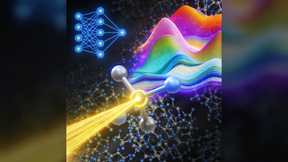Anti-tumor immune responses in pancreatic cancer
 (Download Image)
(Download Image)
The pancreas is about six inches long and is positioned below the liver. Pancreatic cancer, while rare, is extremely deadly—tumors are difficult to excise surgically and therapies are mostly ineffective.
Pancreatic ductal adenocarcinoma (PDAC) is one of the deadliest types of cancer with a limited survival rate of about 10% over five years. In general, by the time a patient presents symptoms, the disease has advanced to a surgically unresectable stage and likely metastasized to other vital organs leading to rapid mortality. Since conventional chemotherapy prolongs patients’ lives for only a few months, it is necessary to identify new therapies or better therapeutic targets.
In previous research, cadherin 11 (CDH11), a cell-to-cell adhesion molecule, has been linked to tumor growth and immunosuppression in PDAC. The inhibition of CDH11 in these studies has shown extended survival rates in mice with PDAC. However, the mechanisms by which CDH11 deficiency influences PDAC progression and anti-tumor immune responses have yet to be fully elucidated.
A new study, published in Frontiers in Oncology, investigates CDH11-deficiency induced changes in PDAC tumor microenvironments (TME) by performing single-cell RNA sequencing on tumor-bearing mice. The research team compared this data against publicly available human pancreatic cancer data and found that CDH11 protein expression was significantly elevated in tumor samples. Overall, the data suggests that CDH11 deficiency significantly alters the cancer-associated fibroblasts and immune microenvironments, contributing to the reduction of immunosuppressive cytokines and leading to an increase in anti-tumor immunity and enhanced survival.
Understanding how CDH11 promotes an immunosuppressive TME in PDAC will provide invaluable insights into developing new clinical approaches for effective eradication of cancer cells, in solid tumors that are classically immunodeficient. Future work aimed at therapeutically altering CDH11 and immune subpopulations may provide insight into successful approaches for modulating the immunosuppressive nature of the pancreatic TME.
This research is supported by LLNL’s Laboratory Directed Research Development program (LLNL-JRNL-823440).
[A. Sebastian, K.A. Martin, I. Peran, N.R. Hum, N.F. Leon, B. Amiri, S.P. Wilson, M.A. Coleman, E.K. Wheeler, S.W. Byers, G.G. Loots, Loss of Cadherin-11 in pancreatic ductal adenocarcinoma alters tumor-immune microenvironment, Frontiers in Oncology (2023), DOI: 10.3389/fonc.2023.1286861.]
–Physical and Life Sciences Communications Team







